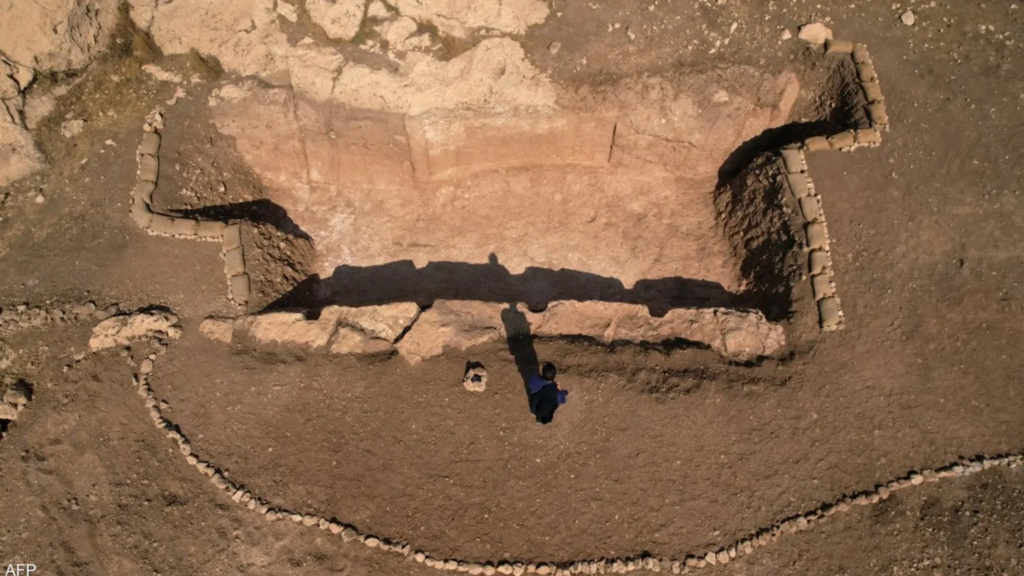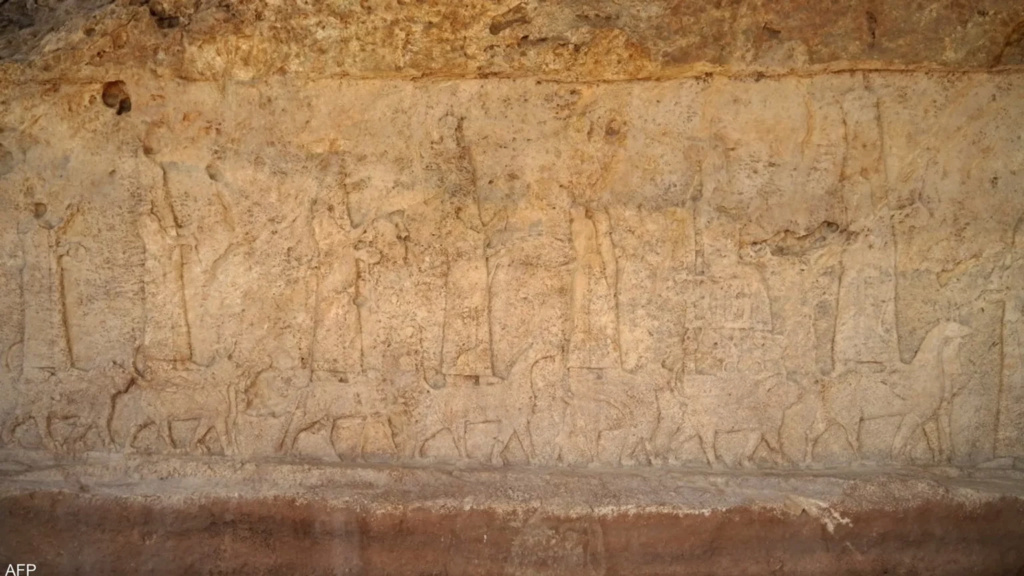Iraq... Unearthing an archaeological park with 2,700-year-old murals

The authorities of the Kurdistan region of Iraq inaugurated the first phase of an archaeological park at the site of an irrigation canal dating back more than 2,700 years, with huge sculptures carved on its walls.
The antiquities discovered at Fayda date back to the era of the Assyrian king Sargon II (705-721 BC) and his son Sennacherib who succeeded him.
Amidst the rugged mountains, an official inauguration ceremony was held on Sunday for the archaeological park, in the presence of the governor of Dohuk and the Italian ambassador to Iraq, Maurizio Griganti.
According to the Director of Antiquities and Heritage in Duhok, Becs Privkani, "visiting the site is currently restricted to foreign tourists, researchers and specialists only."
The site, south of Dohuk and north of the city of Mosul, includes an irrigation canal with a length of ten kilometers, with 13 sculptures sculpted on its walls.
These murals were discovered at the Fayda site in several stages in recent years, through excavations carried out by a joint mission of Italian archaeologists from the University of Udine and their counterparts from the Directorate of Antiquities and Heritage of Dohuk Governorate in the Kurdistan Region.
The murals, two meters long and five meters wide, date from the end of the eighth century BC and the beginning of the seventh century BC, as explained in 2021 by the co-director of the Italian mission, Daniele Morandi Bonacossi.
It is believed that King Sargon II or his son Sennacherib ordered its carving.
Each mural represents an Assyrian king offering prayers to the seven most important deities of the Assyrians.
The Assyrian king Sargon II ruled in the eighth century BC and established his capital in northern Iraq in the Nineveh Plain near the city of Mosul.
Fayda Park is one of five sites that will be included in the archaeological park project in the future.
Iraq is a country rich in archaeological sites from north to south, where the civilizations of Mesopotamia flourished from the Sumerian, Akkadian, Babylonian and Assyrian.
Its land witnessed the first civilizations that depended on an economy based on agriculture with innovations in the field of irrigation, and it is considered the cradle of the first written law and the first cities.

The antiquities of Iraq were looted by wars and crises, especially after 2003, and then ISIS took control of parts of the country in 2014.

source :websites

